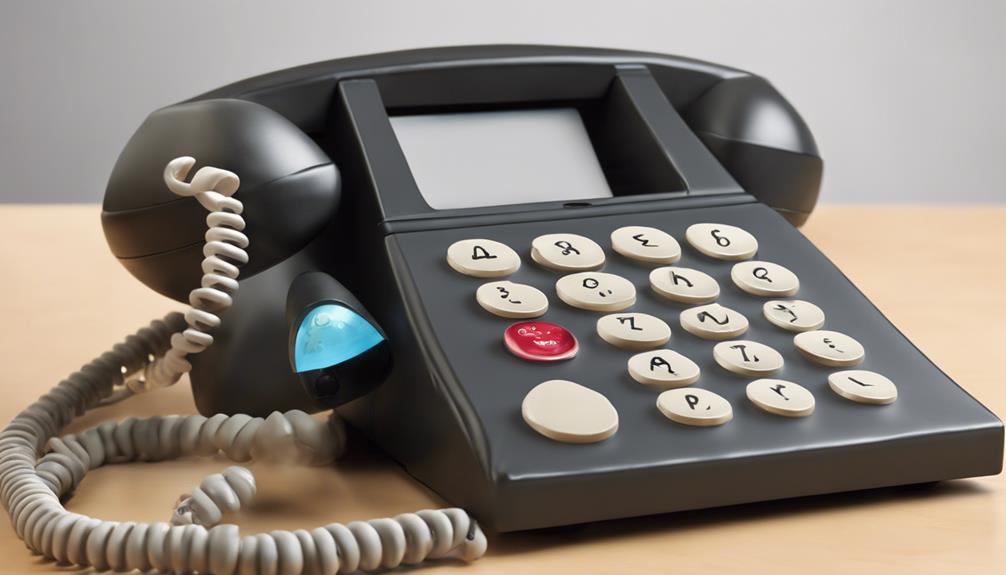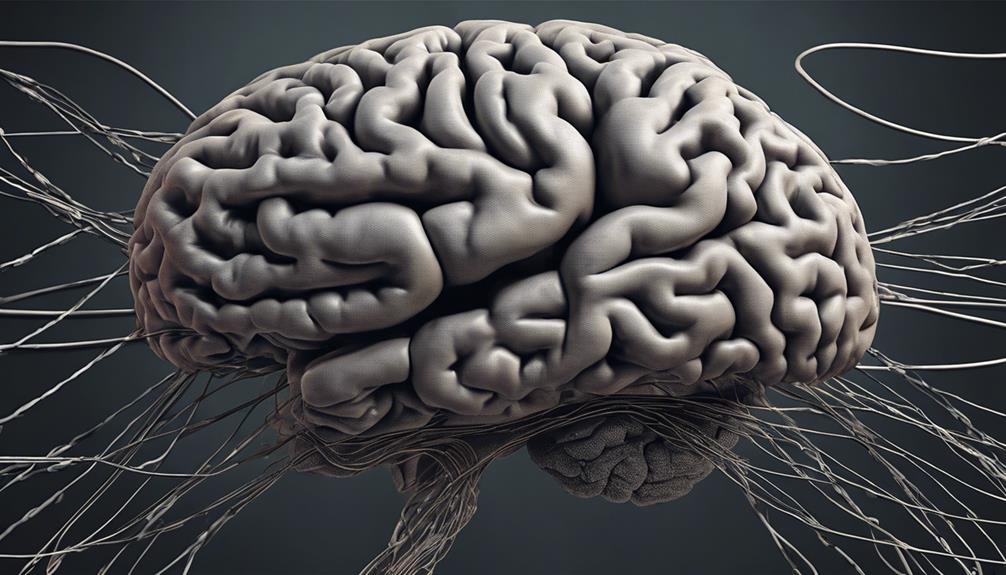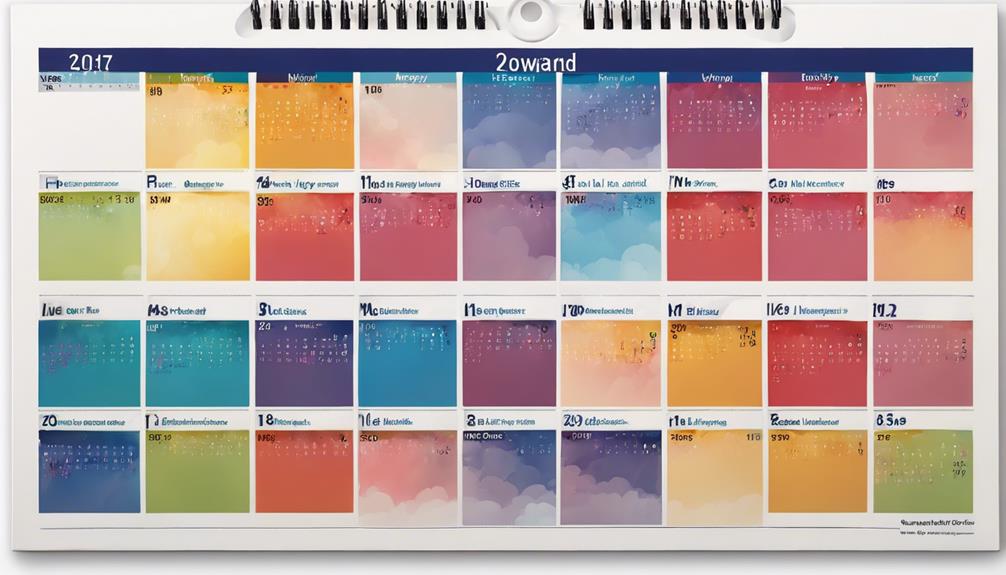Exploring the world of cell phones designed for seniors with dementia is akin to navigating a labyrinth of choices.
The intricacies of these devices offer a glimpse into a world where communication meets cognitive support. However, the real question lies in how these specialized phones bridge the gap between technology and the unique needs of individuals experiencing dementia.
Benefits of Dementia-Friendly Phones
When it comes to dementia-friendly phones, their benefits are truly life-changing for seniors with cognitive challenges. Phones designed for individuals with dementia, such as picture memory phones, play a crucial role in enhancing communication and providing ease of use. These specialized devices offer programmed buttons with visual cues for specific calls, minimizing confusion and frustration. By storing phone numbers visually, dementia-friendly phones aid those with memory issues, like early onset Alzheimer's, in making calls effortlessly.
One remarkable advantage is the prevention of late-night random calls, which can be distressing for both the individual with dementia and their loved ones. Picture memory phones not only streamline communication but also offer peace of mind by giving complete control over all inbound and outbound calls. These features make dementia-friendly phones invaluable tools for seniors with cognitive impairments, allowing them to stay connected with friends and family in a way that's intuitive and stress-free.
Key Features to Consider
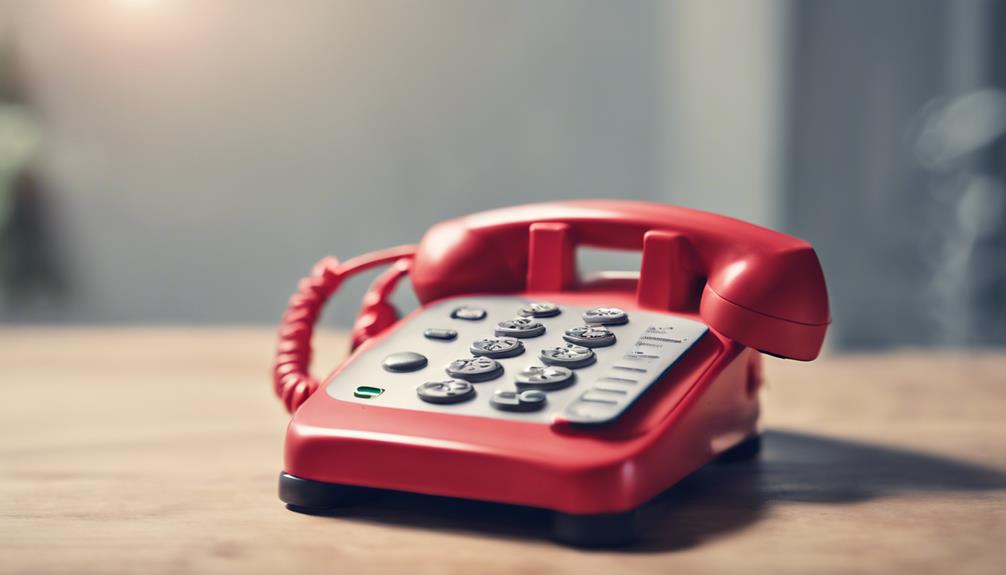
To better equip seniors with dementia for enhanced communication and ease of use, it's crucial to consider key features in telephones tailored to their specific needs. When selecting a phone for seniors with dementia, here are some essential features to keep in mind:
- Large Buttons: Phones with large, easy-to-press buttons are ideal for seniors with dementia as they help in navigation and operation without confusion.
- Photo Dial Buttons: Opt for phones that have photo dial buttons for quick and straightforward recognition, making it easier for seniors to call their loved ones.
- Cordless Design: A cordless phone allows seniors with dementia the freedom to move around without the limitation of cords, promoting independence and safety.
- Handsfree Speaker: Phones equipped with a handsfree speaker function simplify communication for seniors with dementia, enabling them to converse without the need to hold the device.
Top Recommended Phones
Exploring the top recommended phones for seniors with dementia reveals innovative features that prioritize ease of use and enhanced communication. Among the products highly regarded for individuals with dementia are the Future Call FC-1007SP, Serene Innovations HD40P, and Panasonic Amplified Cordless KX-TGM420W. These phones cater to specific needs with features like extra-large buttons, photo dialing, volume control, and loud ringers, making them ideal choices.
The criteria for selecting these phones include ease of use, separate photo and number dialing buttons, and cordless designs. Companies like teleCalm offer support in choosing the best dementia-friendly home phones, aiding both caregivers and individuals with dementia in making informed decisions. These top phones come equipped with essential features such as 911 speed dial, flashers, Caller-ID, and a focus on hearing impairment to ensure they meet the requirements of seniors with dementia.
When looking for phones tailored to the needs of seniors with dementia, these options stand out as reliable choices.
User-Friendly Interfaces
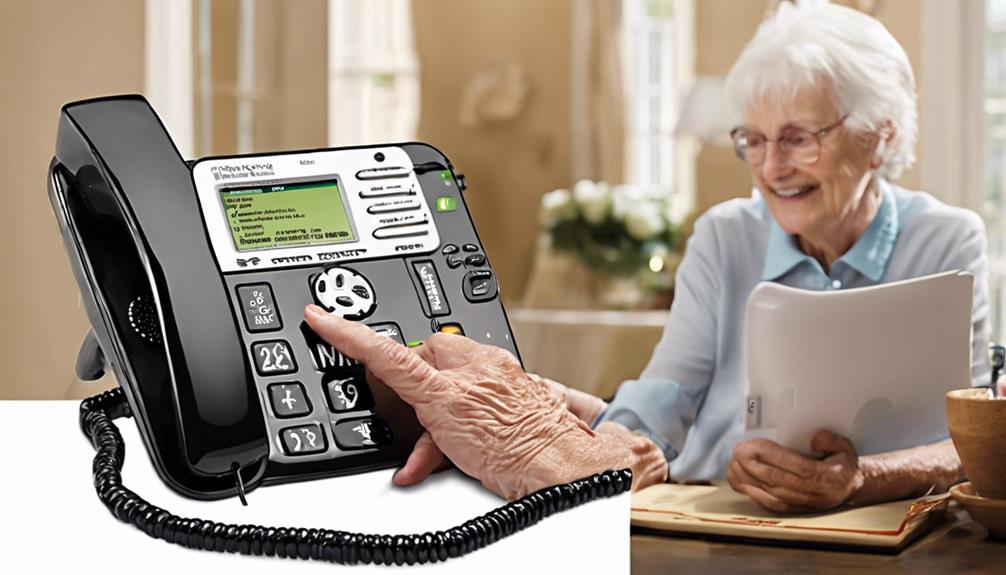
As we focus on user-friendly interfaces in phones for seniors with dementia, customizable photo buttons and large number keys play a crucial role in enhancing ease of use and recognition. These features are specifically tailored to assist seniors with dementia in navigating their phone efficiently. Here are some key aspects of user-friendly interfaces tailored for seniors with dementia:
- Customizable photo buttons aid in quick dialing and memory recall.
- Large number keys improve visibility and ease of dialing for individuals with dementia.
- One-touch buttons provide instant access to frequently dialed numbers, enhancing convenience.
- Adjustable settings, compatibility with hearing aids, and phonebook storage ensure personalized and accessible communication options for seniors with dementia.
Enhancing Communication and Independence
Enhancing communication and independence for seniors with dementia involves incorporating features like photo dial buttons and large keys to facilitate easy interaction with their phones.
The large buttons on these phones are designed to assist seniors with motor skill challenges in dialing numbers accurately.
Additionally, the cordless design of these phones provides mobility and convenience, allowing seniors to move around their homes freely while staying connected.
The inclusion of simple features like handsfree speaker options further enhances communication and autonomy for seniors with dementia.
Frequently Asked Questions
What Is the Simplest Phone for Dementia Patients?
The simplest phone for dementia patients is the Future Call FC-1007SP. It features extra-large number buttons and photo dialing options, making it easy to use.
With a 911 speed dial function and volume control, it caters to individuals with dementia. The phone's design includes separate photo and number dialing buttons, a flasher for visual alerts, and a loud ringer for better accessibility.
This user-friendly phone meets the specific needs of dementia patients effectively.
What Are 3 Things to Never Do With Your Loved One With Dementia?
When dealing with a loved one with dementia, it's crucial to avoid causing frustration or anxiety. We should never argue or rush them.
We must validate their emotions and experiences, ensuring they feel heard and understood. Using simple language and tasks can prevent overwhelming them.
Neglecting their social and emotional needs is a big no-no, as human connection is essential for their well-being. Let's always strive to provide patience, understanding, and support.
What Is the Average Age of Death for Someone With Dementia?
We understand the concern about the average age of death for individuals with dementia. The lifespan of someone with dementia can vary based on the type of dementia, overall health, and access to care. Factors such as Alzheimer's disease typically lead to an average of 4 to 8 years after diagnosis, while vascular dementia may result in a shorter lifespan.
It's crucial to provide support and quality care to improve the quality of life for those with dementia.
What Are Signs That Dementia Is Getting Worse?
As signs of dementia worsen, our loved ones may exhibit increased forgetfulness, struggle with familiar tasks, experience communication difficulties, show changes in mood and behavior, and face declining judgment abilities.
These indicators can be emotionally challenging for both the individual and their caregivers. It's crucial to provide support, understanding, and professional help to navigate these complexities and ensure the safety and well-being of those affected by dementia.
Conclusion
So there you have it, folks! These dementia-friendly phones are a game-changer for seniors looking to stay connected and independent.
With their user-friendly interfaces and key features, these phones make communication a breeze. Say goodbye to confusion and frustration, and hello to simplicity and peace of mind.
Trust us, you won't regret making the switch to a memory picture phone. It's like a breath of fresh air in the world of technology for seniors with dementia.
